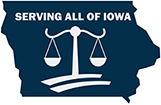- Oakland Motorcycle Accident Injury Attorneys
- Phone: 641-792-3595
- Directions
When tragedy strikes, motorcycle injury lawyers act as unwavering supporters for riders. Their expertise in motorcycle accidents enables them to navigate legal complexities and secure justice and compensation for the injured.
Helmet Laws and Liability in Iowa
Iowa is one of three states in the nation that has no motorcycle helmet law. Despite the lack of a legal requirement, choosing not to wear a helmet can have significant implications if you are involved in a motorcycle accident. While you may be within your rights to ride without a helmet, if you suffer a head injury in a crash, you could be held partially liable for your injuries.
The Impact of Helmet Use on Liability
Wearing a helmet is widely recognized as a crucial measure to prevent traumatic brain and head injuries in the event of an accident. Consequently, not wearing a helmet may be considered negligent behavior, which can affect your liability in a motorcycle accident claim.
When Helmet Use Matters
- Head or Brain Injuries: If the injury you sustain is to your head or brain, and it could have been prevented by wearing a helmet, you might be considered partially negligent. For example, if you were in a motorcycle accident and suffered a head injury, the defense might argue that your failure to wear a helmet contributed to the severity of your injuries.
- Non-Head Injuries: If the injuries are unrelated to your head or brain, such as a leg injury, your lack of a helmet would likely be irrelevant to the claim, as the helmet would not have prevented those injuries.
Demonstrating Caution
If you were wearing a helmet at the time of the crash, this can demonstrate that you were exercising caution and care while riding, potentially strengthening your claim against the other party.
Comparative Fault Laws in Iowa
Iowa follows a comparative fault system, which can influence the outcome of your motorcycle accident claim. Under this system, if you are found to be partially at fault for your injuries, the amount of damages you can recover will be reduced in proportion to your degree of fault.
Proving Negligence
To maximize your recovery, it's essential to prove the other party's negligence. This involves gathering substantial evidence to show that the accident occurred due to their actions, not your own.
Establishing Fault Without a Valid Motorcycle License
Even if you were riding without a valid motorcycle license, you can still file a motorcycle accident claim in Iowa. The lack of a license does not automatically determine fault in an accident. However, you may face penalties for operating a motorcycle without a license.
Modified Comparative Fault State
Iowa's modified comparative fault law allows you to recover damages as long as you are not more than 51% responsible for the accident. If the other driver is found to be mostly responsible, you can still file a claim and recover damages.
Documentation and Evidence
To prove the other driver's fault, you should gather and present the following evidence:
- Photographs: Capture the accident scene, vehicle damage, and any visible injuries.
- Witness Testimony: Collect statements from witnesses who saw the accident.
- Driver's Information: Note the other driver’s contact details and insurance information.
- Accident Report: File an Iowa Accident Report if the accident resulted in death, injury, or significant property damage. This report should be mailed to the Iowa Department of Transportation within 72 hours.
Dealing with Insurance Companies
Filing a motorcycle accident claim without a valid license can be challenging. Insurance companies might argue that your lack of a license indicates fault. Presenting convincing evidence and demonstrating that the other driver was primarily at fault is crucial.
Importance of Motorcycle Safety Equipment
While helmets are the most discussed safety gear, other innovative equipment can also enhance rider safety and potentially impact accident claims.
Motorcycle Airbag Jackets
Airbag jackets are designed to protect riders by inflating upon impact. These jackets come in various types:
- Cable-Connected Jackets: These inflate when a connected cable detaches during a crash.
- Sensor-Activated Jackets: These high-tech jackets use sensors to detect a fall and inflate within milliseconds.
Motorcycle Smart Helmets
Smart helmets are equipped with advanced features to reduce distractions:
- Bluetooth Connectivity: Allows hands-free communication.
- GPS Integration: Provides navigational assistance and alerts about sharp turns.
- Heads-Up Display: Projects essential information onto the visor, keeping the rider's focus on the road.
Contacting a Motorcycle Accident Attorney
Following a motorcycle accident, whether or not you were wearing a helmet or had a valid license, it's essential to seek legal assistance to navigate the complexities of your claim. An experienced motorcycle accident attorney can help you:
- Prove Negligence: Gather evidence to establish the other driver's fault.
- Navigate Comparative Fault: Minimize your percentage of fault to maximize your compensation.
- Deal with Insurance Companies: Handle negotiations and protect your rights.
Consulting a Motorcycle Accident Attorney
The toll from severe motorcycle injuries can encompass substantial medical expenses and long-term care costs for victims and their families. Lost wages may compound matters, especially if employment becomes unrealistic for an extended period. Getting help from a motorcycle accident attorney allows the pursuit of comprehensive compensation, from financial damages and emotional distress such as pain and suffering.
Victims of these accidents should seek consultation with a motorcycle accident attorney, as damages may be extensive and recovery of compensation is important.
At Walker, Billingsley & Bair, our motorcycle accident attorneys can represent you in dealings with your insurance company, or when filing a personal injury claim. Set up your consultation now by calling 641-792-3595.

